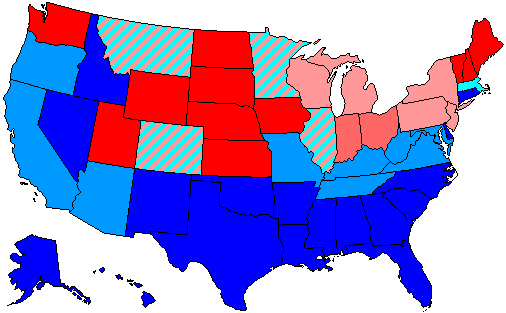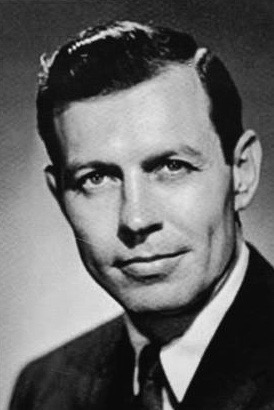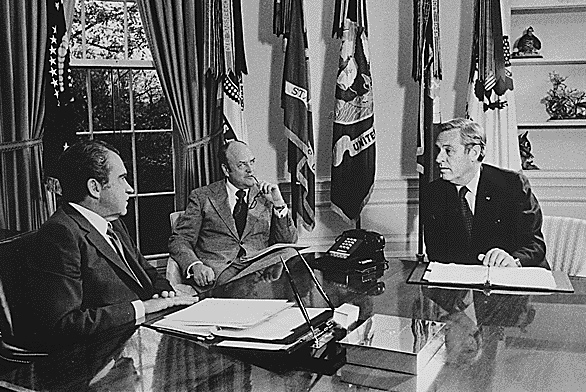|
1962 United States Gubernatorial Elections
United States gubernatorial elections were held 6 November 1962 in 35 states, concurrent with the House and Senate elections. In Minnesota, the governor was elected to a 4-year term for the first time, instead of a 2-year term. In North Dakota, this was the last election on a 2-year cycle, before switching to a 4-year term for governors. The Democratic and Republican Republican can refer to: Political ideology * An advocate of a republic, a type of government that is not a monarchy or dictatorship, and is usually associated with the rule of law. ** Republicanism, the ideology in support of republics or agains ... parties each gained seven governorships from the other party, leaving the overall partisan balance unchanged. Results See also * 1962 United States elections ** 1962 United States Senate elections ** 1962 United States House of Representatives elections References {{USGovElections November 1962 events in the United States ... [...More Info...] [...Related Items...] OR: [Wikipedia] [Google] [Baidu] |
1962 United States House Of Representatives Elections
The 1962 United States House of Representatives elections was an election for the United States House of Representatives in 1962, which occurred in the middle of President John F. Kennedy's term. As in most midterm elections, Kennedy's Democratic Party lost seats to the opposition Republican Party, but retained a majority. House Democrats were expected to lose their majority, but the resolution over the Cuban Missile Crisis just a few weeks prior led to a rebound in approval for the Democrats under President Kennedy. The number of seats up for election went back to 435, in accordance with reapportionment resulting from the 1960 census. The membership had been increased temporarily to 437 in 1959, providing 1 seat each for the new states of Alaska and Hawaii, while the other 435 seats continued with the reapportionment resulting from the 1950 census. This was the last midterm election cycle until 2022's in which a sitting Democratic president experienced net losses for his party ... [...More Info...] [...Related Items...] OR: [Wikipedia] [Google] [Baidu] |
1962 California Gubernatorial Election
The 1962 California gubernatorial election was held on November 6, 1962. The Democratic incumbent, Pat Brown, ran for re-election against former U.S. vice president and 1960 Republican presidential nominee Richard Nixon. In his concession speech, Nixon accused the media of favoring his opponent Brown, stating that it was his " last press conference" and "You won't have Nixon to kick around any more." Six years later, Nixon was elected President of the United States. Background Pat Brown was a relatively popular Democratic governor in California who was first elected in 1958. However, he was seen as vulnerable due to criticisms of indecision and occasional errors in policy. In 1958, the Democratic Party had swept all but a single statewide office, and all of the incumbents were seeking reelection in 1962. Despite 1958's near-sweep by Democrats and the state having more registered Democrats than Republicans (4,289,997 registered Democrats on election day 1962 compared to 3,002 ... [...More Info...] [...Related Items...] OR: [Wikipedia] [Google] [Baidu] |
1962 Georgia Gubernatorial Election
The 1962 Georgia gubernatorial election was held on November 6, 1962. Carl Sanders won the Democratic primary on September 12 with 58.07% of the vote, defeating former Governor Marvin Griffin. At this time, Georgia was a one-party state, and the Democratic nomination was tantamount to victory. Sanders won the November general election without an opponent. This election was notable for a number of reasons. First, it was the last Georgia gubernatorial election to date where the Republican Party did not field a candidate. Second, the primary election was the first that took place under a winner-take-all system, as the previously used County Unit System had been struck down by the US Supreme Court in ''Gray v. Sanders.'' Finally, upon election, Carl Sanders became the youngest governor of a state at the time (aged 37) and the first governor from an urban area since the 1920s. He beat former Governor Marvin Griffin in the Democratic primary. Democratic primary Candidates *Marvin ... [...More Info...] [...Related Items...] OR: [Wikipedia] [Google] [Baidu] |
John DeKoven Alsop
John deKoven Alsop (July 4, 1915 – April 6, 2000) was an American soldier, insurance executive, and politician who served in the Connecticut State House of Representatives and was an unsuccessful candidate for the governor of Connecticut in 1958 and 1962, and was known as "one of Connecticut's most influential and colorful Republicans." Early life Alsop was born and raised in Avon, Connecticut, from an old Yankee family. He was the youngest of four children born to Joseph Wright Alsop IV (1876–1953) and Corinne Douglas Robinson (1886–1971), both of whom also served in the Connecticut General Assembly. His brothers were journalists Joseph Alsop and Stewart Alsop. Alsop's family included politicians such as Continental Congressman John Alsop, Richard Alsop, John Alsop King, and James Monroe. His paternal grandfather, Dr. Joseph Wright Alsop III, was the Democratic nominee for Lt. Governor of Connecticut in 1891. Through his mother, he was descended from the Oyster Bay br ... [...More Info...] [...Related Items...] OR: [Wikipedia] [Google] [Baidu] |
John N
John is a common English name and surname: * John (given name) * John (surname) John may also refer to: New Testament Works * Gospel of John, a title often shortened to John * First Epistle of John, often shortened to 1 John * Second Epistle of John, often shortened to 2 John * Third Epistle of John, often shortened to 3 John People * John the Baptist (died c. AD 30), regarded as a prophet and the forerunner of Jesus Christ * John the Apostle (lived c. AD 30), one of the twelve apostles of Jesus * John the Evangelist, assigned author of the Fourth Gospel, once identified with the Apostle * John of Patmos, also known as John the Divine or John the Revelator, the author of the Book of Revelation, once identified with the Apostle * John the Presbyter, a figure either identified with or distinguished from the Apostle, the Evangelist and John of Patmos Other people with the given name Religious figures * John, father of Andrew the Apostle and Saint Peter * Pope J ... [...More Info...] [...Related Items...] OR: [Wikipedia] [Google] [Baidu] |
1962 Connecticut Gubernatorial Election
The 1962 Connecticut gubernatorial election was held on November 6, 1962. Incumbent Democrat John N. Dempsey defeated Republican nominee John deKoven Alsop with 53.21% of the vote. General election Candidates *John N. Dempsey, Democratic *John deKoven Alsop, Republican Results References {{1962 United States elections 1962 Connecticut Gubernatorial A governor is an administrative leader and head of a polity or political region, ranking under the head of state and in some cases, such as governors-general, as the head of state's official representative. Depending on the type of political ... November 1962 events in the United States United States gubernatorial elections in the 1960s 1962 in Connecticut ... [...More Info...] [...Related Items...] OR: [Wikipedia] [Google] [Baidu] |
Independent (politician)
An independent or non-partisan politician is a politician not affiliated with any political party or bureaucratic association. There are numerous reasons why someone may stand for office as an independent. Some politicians have political views that do not align with the platforms of any political party, and therefore choose not to affiliate with them. Some independent politicians may be associated with a party, perhaps as former members of it, or else have views that align with it, but choose not to stand in its name, or are unable to do so because the party in question has selected another candidate. Others may belong to or support a political party at the national level but believe they should not formally represent it (and thus be subject to its policies) at another level. In running for public office, independents sometimes choose to form a party or alliance with other independents, and may formally register their party or alliance. Even where the word "independent" is used, s ... [...More Info...] [...Related Items...] OR: [Wikipedia] [Google] [Baidu] |
Socialist Labor Party Of America
The Socialist Labor Party (SLP)"The name of this organization shall be Socialist Labor Party". Art. I, Sec. 1 of thadopted at the Eleventh National Convention (New York, July 1904; amended at the National Conventions 1908, 1912, 1916, 1920, 1924, 1928, 1932, 1936, 1940, 1944, 1948, 1952, 1956, 1960, 1964, 1968, 1972, 1976, 1977, 1978, 1979, 1980, 1981, 1982, 1983, 1984, 1987, 1989, 1991, 1993, 2001, 2005 and 2007) (cited February 18, 2016). is the first socialist political party in the United States, established in 1876. Originally known as the Workingmen's Party of the United States, the party changed its name in 1877 to Socialistic Labor Party [...More Info...] [...Related Items...] OR: [Wikipedia] [Google] [Baidu] |
John Arthur Love
John Arthur Love (November 29, 1916 – January 21, 2002) was an American attorney and Republican politician who served as the 36th Governor of the State of Colorado from 1963 to 1973. Early life and education John Arthur Love was born on a farm near Gibson City, Illinois, on November 29, 1916. At age five, John Love moved with his family to Colorado Springs, Colorado. Love received a Bachelor of Arts degree from the University of Denver in 1938 and a Bachelor of Law degree from the University of Denver School of Law in 1941. Love served as a U.S. Navy pilot in World War II for which he was twice awarded the Distinguished Flying Cross. Love started a law practice in Colorado Springs after the war. Family John Love married Ann Daniels in 1942 and the couple had three children, Dan, Andrew and Rebecca. Rebecca grew up to serve as a justice of the Colorado Supreme Court from 1995 to 2006. Andrew Love served 37 years in the US Air Force and retired in 2004 as a Major General ... [...More Info...] [...Related Items...] OR: [Wikipedia] [Google] [Baidu] |
Stephen McNichols
Stephen Lucid Robert McNichols (March 7, 1914 – November 25, 1997) was an American politician who served as Colorado's 35th Governor from 1957 to 1963. Family roots and early life McNichols' father, William H. McNichols, Denver's well-respected auditor for over thirty years, was influential in steering his two sons Bill and Stephen toward their success in state politics. Stephen McNichols graduated from East Denver High School and Regis College to pursue a law degree from Catholic University in Washington. After graduating in 1939, he joined the Federal Bureau of Investigation as a field officer in Baltimore and Boston. After a year of service, McNichols returned home to assist the Denver District Attorney, John A. Carroll. He later became an assistant in the U.S. Attorney General's antitrust division in Denver. Marriage and service in World War II In 1942, McNichols married Marjory Hart. The couple had five children, Stephen, Robert, William, Mary and Marjory. McNich ... [...More Info...] [...Related Items...] OR: [Wikipedia] [Google] [Baidu] |
1962 Colorado Gubernatorial Election
The 1962 Colorado gubernatorial election was held on November 6, 1962. Republican nominee John Arthur Love defeated Democratic incumbent Stephen McNichols with 56.67% of the vote. , this was the last time Pueblo County voted for the Republican candidate. Primary elections Primary elections were held on September 11, 1962. Democratic primary Candidates * Stephen McNichols, incumbent Governor Results Republican primary Candidates *John Arthur Love, former President of the Colorado Springs Chamber of Commerce *David A. Hamil, former Speaker of the Colorado House of Representatives Results General election Candidates Major party candidates *John Arthur Love, Republican *Stephen McNichols, Democratic Other candidates *Louis K. Stephens, Socialist Labor *Stephen L. DeArvil, Independent Results References {{1962 United States elections 1962 Colorado Gubernatorial A governor is an politician, administrative leader and head of a polity or Region#Polit ... [...More Info...] [...Related Items...] OR: [Wikipedia] [Google] [Baidu] |
Scattering
Scattering is a term used in physics to describe a wide range of physical processes where moving particles or radiation of some form, such as light or sound, are forced to deviate from a straight trajectory by localized non-uniformities (including particles and radiation) in the medium through which they pass. In conventional use, this also includes deviation of reflected radiation from the angle predicted by the law of reflection. Reflections of radiation that undergo scattering are often called ''diffuse reflections'' and unscattered reflections are called ''specular'' (mirror-like) reflections. Originally, the term was confined to light scattering (going back at least as far as Isaac Newton in the 17th century). As more "ray"-like phenomena were discovered, the idea of scattering was extended to them, so that William Herschel could refer to the scattering of "heat rays" (not then recognized as electromagnetic in nature) in 1800. John Tyndall, a pioneer in light scattering researc ... [...More Info...] [...Related Items...] OR: [Wikipedia] [Google] [Baidu] |

.jpg)





.png)
